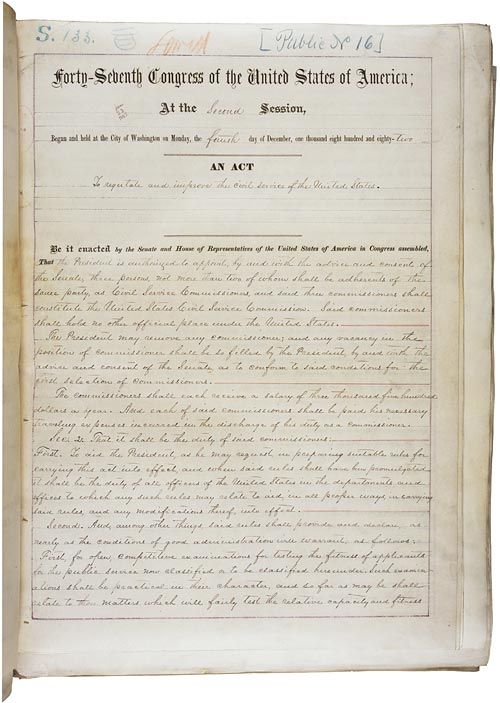The Federal Buyout Offer and the Future of the U.S. Civil Service
Note – this was initially a post on Facebook, copied and reformatted to this website.
The Buyout Offer: What’s Happening Now
The Trump administration has proposed a severance package offering federal employees eight months of salary if they resign by February 6, 2025. While the administration frames this as a cost-saving measure, many observers believe it is an effort to reshape the federal workforce, replacing career employees with political appointees.
How This Compares to Business Practices
Similarities to Private-Sector Buyouts
- Workforce restructuring: Companies undergoing leadership changes often offer buyouts to employees.
- Financial incentives: Businesses use severance packages to encourage voluntary resignations, just as the government is doing now.
- Strategic hiring shifts: A new CEO may want to build a team aligned with their vision, similar to how new administrations bring in political appointees.
Key Differences & Concerns
- Federal employees are not regular employees. They are protected under the civil service system, which ensures government jobs are filled based on merit, not politics.
- This could politicize the government. Unlike private-sector buyouts, which focus on cost savings, this could be about replacing neutral experts with politically motivated hires.
- It threatens government stability. Civil servants provide essential services—mass resignations could lead to disruptions in agencies that serve the public.
- It weakens checks and balances. A government staffed primarily by political loyalists rather than experienced professionals risks becoming less accountable and more partisan.
The Civil Service System: Origins & Evolution
The Pendleton Act (1883): The Birth of Civil Service Protections
- Before the Act: Government jobs were awarded through the spoils system, where positions were handed out as political favors.
- Why It Changed: Public outcry, fueled by corruption and the assassination of President James Garfield (1881) by a disgruntled office-seeker, led to reform.
- What the Act Did:
- Created merit-based hiring for federal jobs.
- Established the Civil Service Commission to oversee fair hiring.
- Prevented political firings and patronage-based hiring.
Major Expansions & Reforms
- Civil Service Reform Act (1978): Created the Office of Personnel Management (OPM) and Merit Systems Protection Board (MSPB) to ensure fair hiring and firing practices.
- Expansion of Merit-Based Hiring: Protections expanded from 10% of federal jobs in 1883 to 90% today.
- The Hatch Act (1939): Restricted political activity by federal employees to maintain neutrality in government.
Trump’s Attempts to Undermine the Civil Service System
Schedule F (2020)
- What It Did: Created a new category of federal employees—Schedule F—who could be hired and fired at will if their roles involved policy-making.
- Why It Was Controversial:
- Made it easier to replace career civil servants with political appointees.
- Removed job protections for thousands of government workers.
- Undermined the nonpartisan nature of the civil service.
- Biden Repeals It (2021): Schedule F was rescinded to restore civil service protections.
Schedule F Reinstated (2025)
- On January 20, 2025, Trump reinstated Schedule F, raising concerns about mass firings and the politicization of government agencies.
- Combined with the buyout offer, this could enable large-scale staff replacement, ensuring more political loyalty in government positions.
Current Status & The Risks Moving Forward
Where the Civil Service Stands Today
- The federal workforce includes over 2 million employees, with about 90% covered under civil service protections.
- Agencies like the OPM and MSPB oversee hiring, discipline, and employee protections.
- The government is supposed to operate fairly and independently, separate from political control.
The Significant Risks
- Massive Employee Turnover
- If many experienced civil servants take the buyout, government operations could suffer from loss of expertise.
- Politicization of Federal Agencies
- With Schedule F reinstated, mass replacements could stack government roles with political loyalists, weakening neutrality.
- Erosion of Public Trust
- If federal agencies become politically controlled, trust in institutions like the DOJ, FDA, and IRS could decline.
- Disruptions to Essential Services
- Agencies that provide disaster relief, health services, and infrastructure support could struggle with staff shortages and inexperience.
To Wrap It Up
The Pendleton Act was passed to prevent government corruption and political favoritism. Over the last 140 years, civil service reforms have strengthened protections to ensure that government employees serve the public—not a political agenda.
The current buyout program, combined with Schedule F, threatens to undo these safeguards. If federal agencies become staffed by political loyalists rather than neutral, qualified professionals, the government could lose credibility, efficiency, and stability.
This isn’t just a routine restructuring—it’s a fundamental shift in how the U.S. government operates. Depending on your perspective, that may be a necessary change or a dangerous precedent.
Sources Include
- AP News – Trump offering federal workers buyouts with about 8 months’ pay
https://apnews.com/article/trump-buyouts-to-all-federal-employees-f67f5751a0fd5ad8471806a5a1067b5e - AP News – Firings, freezes, and layoffs: A look at Trump’s moves against federal employees
https://apnews.com/article/2042969d1855feb2753b6237f1022666 - Politico – Trump offers buyouts for federal workers
https://www.politico.com/news/2025/01/28/trump-offers-buyouts-for-federal-workers-00201106 - The Guardian – US federal workers have until next week to accept Trump’s buyout offer
https://www.theguardian.com/us-news/live/2025/jan/29/donald-trump-democrats-freeze-federal-funding-us-politics-live - National Archives – Pendleton Act (1883)
https://www.archives.gov/milestone-documents/pendleton-act - GovTrack – Pendleton Civil Service Reform Act (PDF)
https://govtrackus.s3.amazonaws.com/legislink/pdf/stat/22/STATUTE-22-Pg403a.pdf - Wikipedia – Pendleton Civil Service Reform Act
https://en.wikipedia.org/wiki/Pendleton_Civil_Service_Reform_Act - Wikipedia – Project 2025
https://en.wikipedia.org/wiki/Project_2025 - Our Public Service – A Profile of the 2023 Federal Workforce
https://ourpublicservice.org/fed-figures/a-profile-of-the-2023-federal-workforce/ - White House (Trump Administration) – Executive Order on Schedule F (2020)
https://trumpwhitehouse.archives.gov/presidential-actions/executive-order-creating-schedule-f-excepted-service/ - White House (Biden Administration) – Executive Order Revoking Schedule F (2021)
https://www.whitehouse.gov/briefing-room/presidential-actions/2021/01/22/executive-order-on-protecting-the-federal-workforce/ - White House (Trump Administration 2025) – Executive Order Restoring Schedule F
https://www.whitehouse.gov/presidential-actions/2025/01/restoring-accountability-to-policy-influencing-positions-within-the-federal-workforce/







